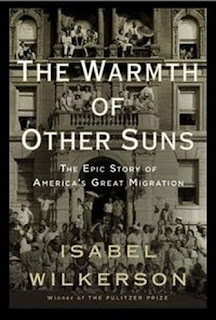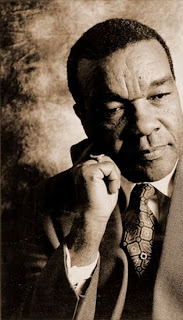Racial Disparities in Smoking-Attributable Mortality and Years of Potential Life Lost --- Missouri, 2003--2007 Weekly November 26, 2010 / 59(46);1518-1522
An estimated 443,000 deaths in the United States occur each year as a result of cigarette smoking and exposure to secondhand smoke (1). These deaths cost the nation approximately $97 billion in lost productivity and $96 billion in health-care costs (1). During 2000--2004 in Missouri, smoking caused 9,600 deaths, 132,000 years of potential life lost (YPLL), $2.4 billion in productivity losses, and $2.2 billion in smoking-related health-care expenditures annually (2). To limit the adverse health consequences of tobacco use, states implement comprehensive tobacco control programs that identify disparities among population groups and target those disproportionately affected by tobacco use (3). This report compares the public health burden of smoking among whites and blacks in Missouri by estimating the number of smoking-attributable deaths and YPLL in these population subgroups during 2003--2007. The findings indicate that the average annual smoking-attributable mortality (SAM) rate in the state was 18% higher for blacks (338 deaths per 100,000) than for whites (286 deaths per 100,000). The relative difference in smoking-attributable mortality rates between blacks and whites was larger for men (28%) than women (11%). For Missouri, these estimates provide an important benchmark for measuring the success of tobacco control programs in decreasing the burden of smoking-related diseases in these populations and reaffirm the need for full implementation of the state's comprehensive tobacco control program (3).
The adult module of CDC's Smoking-Attributable Mortality, Morbidity, and Economic Costs (SAMMEC) system* was used to calculate the SAM and YPLL rates for 19 disease categories.† Five-year average annual SAM and YPLL rates were computed from annual reports generated through SAMMEC. These estimates only cover deaths among persons aged ≥35 years. Deaths attributable to secondhand smoke or from smoking-related fires were not included. Sex-, race-, and age-specific smoking-attributable deaths were calculated by multiplying the total number of deaths in each of the 19 disease categories by the estimate of the smoking-attributable fraction (SAF) of deaths for each demographic group.§ These deaths were then grouped into three cause-of-death categories (malignant neoplasm, circulatory disease, and respiratory disease). Both races were assumed to have the same relative risk for dying from a particular disease among the 19 disease categories attributable to smoking. Missouri data for 2003--2007 from the Behavioral Risk Factor Surveillance System (BRFSS) were used to estimate the age-, sex-, and race-specific annual prevalence of current and former smoking in the state.¶ Missouri death records for 2003--2007 were used to calculate the age-, sex-, race-, and disease-specific number of deaths each year (4). The life expectancy (average remaining years of life) by age group and sex was calculated using the abridged life table,** and absolute and relative disparity indexes were computed for each smoking-related disease category (Tables 1--3) comparing SAM rates for blacks to SAM rates for whites. T-tests were used to evaluate the statistical significance (p≤0.05) of differences in SAM/YPLL rates between blacks and whites for the three major disease categories and major diseases.††
During 2003--2007, smoking caused an estimated average of 9,377 deaths (8,400 among whites and 853 among blacks§§) annually among adults in Missouri (Table 1). An estimated 18.1% of deaths among persons aged ≥35 years in Missouri were the result of cigarette smoking (total number of deaths for this age group was 51,856). Smoking caused 32.1% of all deaths from cancer, 15.3% of all circulatory deaths, and 46.5% of all respiratory deaths in Missouri during this period (4). In the cancer category, the major cause of death was cancer of the trachea, lung, or bronchus; in the circulatory category, the major cause was ischemic heart disease; and in the respiratory disease category, the major cause was chronic airway obstruction (Table 1). For both blacks and whites in Missouri, regardless of sex, the leading cause of SAM was cancer, followed by circulatory and respiratory diseases.
Although SAM for blacks represented only 9.1% of the total SAM, the SAM rate for blacks in Missouri was 18% higher than for whites (Table 2). This disparity was larger (28%) for black men than for black women (11%). SAM rates for blacks were 26% higher than for whites for malignant neoplasm and 53% higher for circulatory diseases but 32% lower for respiratory diseases.
The smoking-attributable YPLL rate for blacks also was 18% higher than for whites and differed most for men. Black men had a YPLL rate 25% higher than white men, and the rate for black women was 15% higher than for white women (Table 3). Similar to the SAM results, the YPLL rates for the three major disease categories showed that the YPLL rates for blacks were higher than for whites for malignant neoplasm and circulatory diseases but lower for respiratory diseases. The YPLL rate resulting from smoking-related cancer deaths for blacks was 19% higher than for whites, but 26% higher for the SAM rate. For circulatory deaths, the YPLL rate for blacks was 54% higher, similar to the disparity in the SAM rate (53%). For respiratory diseases, the YPLL rate for blacks was 33% lower than for whites, and similarly, 32% lower for the SAM rate. For specific diseases, blacks had a 14% higher YPLL rate for lung cancer, 35% higher rate for ischemic heart disease, and 38% lower rate for chronic airway obstruction than whites.
Reported by
N Kayani, PhD, SG Homan, PhD, S Yun, MD, PhD, Missouri Dept of Health and Senior Svcs. A Malarcher, PhD, Office on Smoking and Health, CDC.
Centers for Disease Control and Prevention 1600 Clifton Rd. Atlanta, GA 30333, USA
800-CDC-INFO (800-232-4636) TTY: (888) 232-6348, 24 Hours/Every Day - cdcinfo@cdc.gov






























